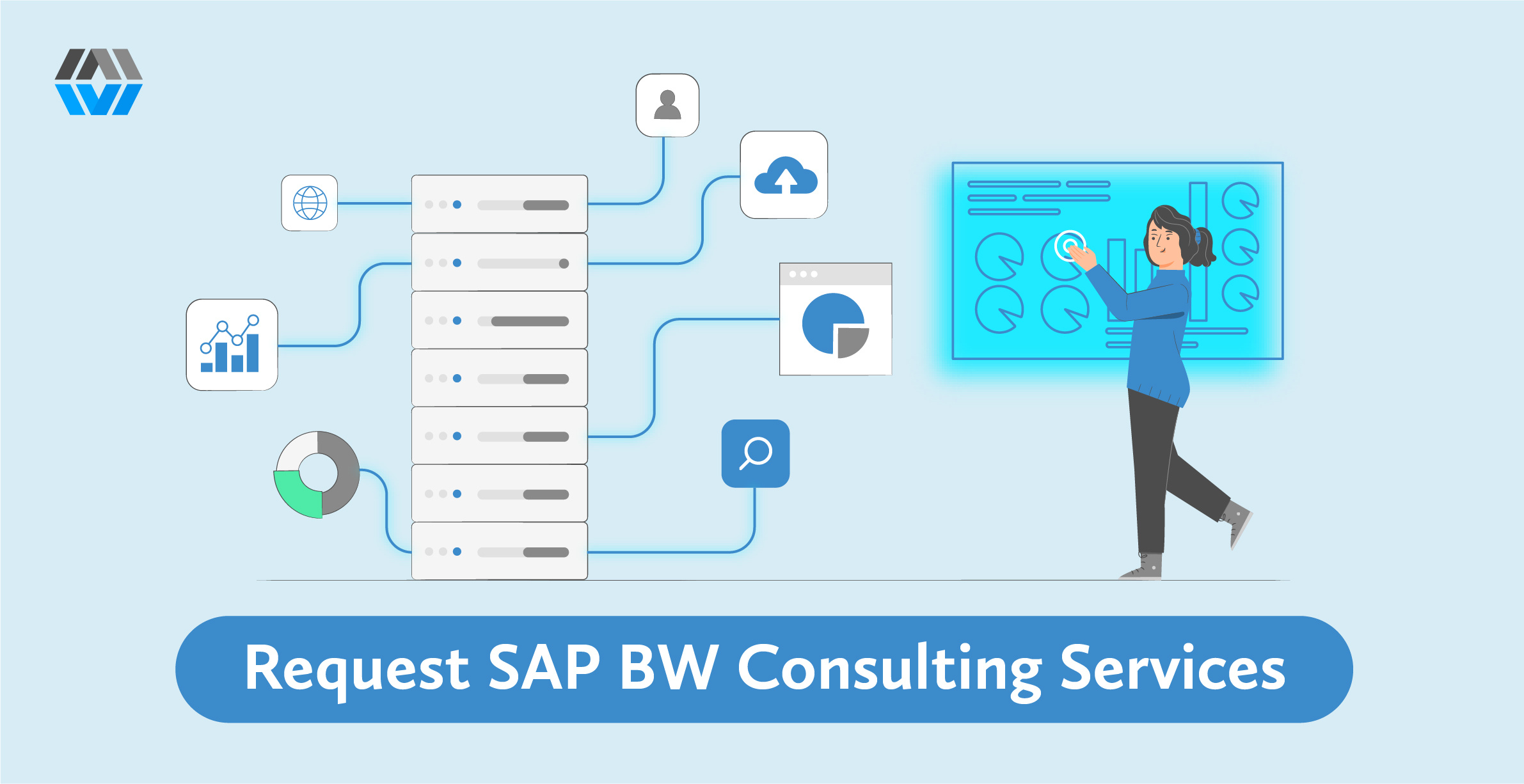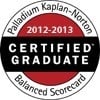Who We Are
SAP BW Consulting, Inc. was founded in 2008 by SAP Industry Principal and SAP BW expert Lonnie Ayers and SAP BW Consulting expert as well as automotive embedded systems expert Doug Ayers.
Our background in Fortune 500 companies, as both SAP Program/Project Managers and SAP BW Consultants, has allowed us to provide enterprise class SAP consulting expertise to companies all around the world.
Why We Focus On Business Intelligence
Our business consulting expertise had revealed that almost every SAP customer eventually needed a data warehouse solution if they were to achieve their goals for owning SAP. With a deep interest in developing effective strategies, we knew customers needed solid datawarehouse solutions. Without good data, it was proving impossible for clients to progress.
The promise of ERP systems like SAP was end-to-end business process functionality coverage. That means there are ways to measure process performance, and thus improve it. This is how you leverage an ERP system. You use it to automate processes, and you use business intelligence to reveal competitive advantage points.
How Our Business Intelligence Methodology Ensures Success
Implementing SAP Business Intelligence or SAP BW is different than implementing SAP ERP. Our engineered approach, which is a synthesis of the automotive embedded systems engineering approach and the software development lifecycle (SDLC), is an iterative approach, closer to waterfall than purely agile and distinctly different than SAP ASAP or SAP Activate.
Our philosophy is simple - get useful product in the hands of users as quickly as possible and iterate. Yes, we work off business reporting requirements, but users need to see the system to 'know' their requirements. It's a virtuous circle, using a repeatable, measurable process.
Where Is Business Intelligence Headed
We've been using and implementing SAP BW since 1999 and other systems prior to that. The software has continuously evolved, with SAP now offering SAP HANA, their in-memory database. There are many dashboarding solutions, such as SAP Webi and xCelsius, and many different architectures.
What is clear is that you have to work backwards from the user requirements, and then figure out how to make systems deliver the information in the most user friendly way.
The primary goal has to be achieving a high level of user acceptance and for end users to gain continual insight from the system. Our experience is that you have to combine business intelligence technical systems expertise with business acumen to get users what they need to do their jobs.
That means SAP Business Intelligence consulting will continue to require SAP consultants with very advanced business consulting capabilities.
Who Needs Business Intelligence
In one form or another, we've seen that businesses of every size can benefit from having a robust business intelligence system. This includes tiny little e-commerce operations up through the United Nations. All need and rely upon information coming in from their IT systems.
For instance, e-commerce systems rely on information on analysis of how many times and how often their clients purchase something to determine the best time to send out customized offers. At the global macro level, the United Nations is using business intelligence (actually, a network of systems) to help design refugee support systems and disaster recovery plans.
What You Can Do With Business Intelligence
There is no portion of your business that isn't generating data. The challenge is to implement systems that allow you to acquire it and analyze it to derive useful, actionable insight. You might say improve your signal-to-noise ratio to reduce business entropy.
You can track everything from prices on the Lysine market so you can 'shape' your pricing to keep competitors in check, while not putting them out of business and thus attracting unwanted attention to analyzing the profitability of every flight an airline makes.
Business Strategy Relies on Reliable Information
Of all the uses of Business Intelligence, we believe acting as your datawarehouse of record for the development of your Business Strategy, particularly but not exclusively, for those that use the Balanced Scorecard approach to strategy is the most profitable use of your data. Strategy is what ultimately determines whether you succeed or fail in the market. Strategy without solid data will fail. The CEO needs to own the strategy.
What We Will Write About In This Blog
Our goal with this blog is to share information that we have learned from dozens of projects and what we learn as we execute new projects. That means we will provide tutorials on how to accomplish certain tasks, such as solve data transfer issues. We will also provide practical, proven ways to work with the most common business intelligence tools in our customer's technology stack including:
- SAP Business Warehouse 1.x -> 7.X
- SAP HANA
- SAP Business Objects
- xCelsius
- SAP Dashboarding Tool
- SAP BOBJ Webi (Web Intelligence)
- SAP BOBJ Administration
- SAP EPM (Enterprise Performance Management)
- SAP BOBJ Explorer
- SAP MS Analysis
- SAP Transportation Management
- SAP Event Management
- SAP Supply Chain Management (APO)
- SAP Strategy Management (SAP SSM)
- SAP ETL Tools
SAP Project Management
As a Senior SAP Project and Program Manager (who is SAP ASAP certified, holds a PMP and is both SCRUM and SAFe Certified), clients continue to ask me to take on the role of SAP Project Manager at my asking rate. Sometimes, that means I or one of my team is asked to run SAP Greenfield implementations.
Inhouse SAP Project Director
Often times, in SAP Greenfield Implementation scenarios, the end client doesn't have anyone who speaks SAP (SAPanese) and they ask me to represent them as 'their' inhouse SAP Project Manager. I am often asked to take on this role by SAP itself as well as directly by the end client.
Other times, I am asked to run SAP implementation projects on behalf on SAP Partners. Regardless of the positioning, I am usually managing teams from the client and numerous partners. These teams are often large, remote and complex.
Managing Remote SAP Consulting Teams
I will write about what I've learned managing remote teams, especially with regards to using SAP ASAP and SAP Activate and what else you need to know to get SAP software solutions live.
Many Types of SAP Implementations
There are many other SAP Project Management scenarios, for instance, Brownfield, Global Template development and rollout, divestitures and Carve-Outs and SAP HANA upgrades. I've done all of these and will write about lessons learned from each.
SAP Value Engineering
SAP's In-house Management Consulting Arm
In my role as a Senior Industry Principal, I covered the following industries:
- Professional Services
- Defense
- DFPS (Defense Forces & Public Security)
- Aerospace
- MRO (Maintenance, Repair & Overhaul)
- Travel & Transportation
- Airlines
- Trucking
- Shipping
- Ports
- Utilities
- Electrical
- Water & Sewage
- Telephone
- Mobile
- Engineering, Construction & Operations (ECO)
- Retail
- Postal
I often assembled Virtual Account Teams (VATs) which consisted of SAP Value Engineers (of which I am one as well), Business Transformation Consulting (BTS), Management Consultants, SAP Account Executives, Product Specialist and Partners. The reason for the existence of these VAT teams and why I found them so valuable was because they allowed me to leverage expertise across domains to help not just develop a business case for SAP, but develop a roadmap of how to implement SAP to support the client's business requirements and business processes and achieve the value outlined in the business case.
The Value Engineering tools were comprehensive and 'MBA' level tools which required some degree of expertise to position and use. I will write extensively about these tools, how and when to use them and how a client can make best use of these tools.
Why is This Such a Big Deal?
If you download the project plan from any flavor of SAP Activate from the SAP Service Marketplace, you will find that the very first line and deliverable is the business case. There's a reason it's there and not somewhere further down the list of deliverables.
It's no secret that many SAP projects have had challenges. The SAP Customer Engagement Lifecycle or CEL recognizes that:
- There are plenty of other ERP competitors out there and
- A SAP project can go live, on time, on budget and within scope, and still be considered a failure.
How can number 2 be true and what can you do about it? You need a defensible business case. Plain and simple, a client has many reasons to deny a project was successful, yet needs it to pay off. That's why you need to not only sell on value, you need it to be part of the implementation methodology.
That's why we will write about and provide tools for developing a business case. We will also provide you our take on which SAP Value Engineering tools you should be aware of and how and when you should employ them.
SAP Functional Module Consulting
From a practical standpoint, we are almost always brought in to deliver SAP BW after a system is live or even after a system has been live for years. What SAP BW projects invariably reveal is a need to make modifications to the configuration of SAP Functional Modules. Sometimes these tweaks are small, while other times, it requires ABAP development.
Therefore, by necessity, we have a SAP Functional Consulting delivery capability in the following modules:
- SAP FICO
- SAP TM
- SAP IM
- SAP SD
- SAP CRM
- SAP CS
- SAP APO
- SAP SCM
- SAP MM
- SAP EWM
- SAP PM
- SAP PS
- SAP PLM
- SAP EH&S
- SAP MDM
- SAP SRM
- SAP SEM
- SAP HR
- SAP SuccessFactors
- SAP Fieldglass
- SAP BASIS
- SAP HANA
- SAP BusinessObjects
- SAP MDG
- SAP Hybris
- SAP S/4HANA
- SAP Warranty
- SAP RE-FX
SAP Industry Solutions
SAP has had an Industry Solution focus for a long time, in fact, Senior Industry Principal was my last role for this very reason. Why an industry focus for a core concept such as ERP? Because ERP, as a business concept, is common to the operations of wide array of industries, even when they, themselves, do not recognize it as such.
By bundling specific industry functionality with industry specific best practices, SAP is able to offer highly differentiated products to the market that few competitors are able to match. When you combine this product approach with the Value Engineering tools, you have a powerfully attractive market offering.
On this blog, I will provide many lessons learned about the various SAP Industry Specific Solutions implementations I have garnered from clients over the years. For instance SAP IS-Retail is a powerful, commonly used IT system, yet it always is part of a much larger IT landscape. I will explain why.
Explore More Than 300 Blogs
As this actually is an update to the very first blog we wrote, you should know there are over 600 in-depth blogs you can peruse on this site - and that is just on the SAP side. So please read them, leave a comment, ask a question, give us a backlink if you find something worthwhile. We've tried to make this a leading educational SAP blog. So far, over 400,000 SAP readers seem to have something they like. Maybe you will as well.
Need SAP Business Intelligence Consulting?
No matter where you're at in your SAP journey, if you find yourself in need of SAP BW Consulting, we would like a chance to serve you. Just click the button to get started.



